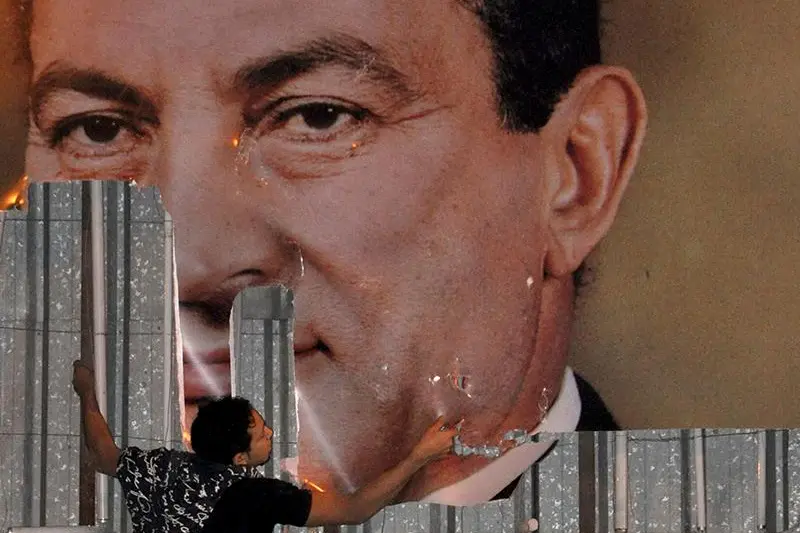PHOTO
LONDON - Like the pharaohs who preceded him millennia ago, Hosni Mubarak valued stability and continuity above all else. That obsession ultimately proved the undoing of the Egyptian strongman, who died on Tuesday aged 91. Had he been bolder on currency and economic reforms, the public anger that exploded during the 2011 Arab Spring uprising might have dissipated. Egypt’s current President Abdel Fattah al-Sisi seems to have learned from Mubarak’s mistakes.
For all his later failings, Mubarak deserves some credit for keeping the Middle East’s most populous nation in one piece after the 1981 assassination of statesman Anwar Sadat. A capable but uninspiring deputy, Mubarak navigated Egypt through the Arab world backlash at Sadat’s secretly negotiated peace deal with neighbouring Israel. This bought him a permanent place in the United States’ good books, but the alliance with Washington did little to mask his shortcomings as leader once the immediate danger had passed.
Sisi has taken note. The former general’s 50% devaluation of the Egyptian pound in 2016 mirrors a partial currency loosening in 2004 forced through by reformists in Mubarak’s own cabinet. As with Sisi’s later step, that put a rocket under stagnant GDP growth. But hopes Mubarak might follow through with wider reforms quickly fizzled out, leaving Egypt’s $300 billion economy dangerously reliant on remittances and Suez Canal and tourism receipts. That proved a career-ending mistake when the Arab Spring swept across the Sahara.
Sisi has shown a similar reluctance to embrace Egypt’s structural flaws, which include a sclerotic labour market and a budget deficit forecast at more than 6% of GDP this year. Devaluation pushed inflation to a 30-year high of 33% in 2017, and attempts to whittle down fuel and bread subsidies met with street protests.
Yet Sisi, who came to power after a coup against the elected leader of the leftist Muslim Brotherhood, has avoided Mubarak’s other vulnerability. As a former intelligence and army chief, he has personal control over Egypt’s feared security apparatus. Mubarak, an air force commander, had to rely on the police, whose grip proved powerless in the face of massive protests. Sisi – and the men in khaki in the shadow of the pyramids - are unlikely to permit the same mistake.
CONTEXT NEWS
- Former Egyptian President Hosni Mubarak, who held power for 30 years until he was ousted in a 2011 popular uprising, died on Feb. 25.
- The 91-year-old passed away in intensive care a few weeks after undergoing surgery. Egypt's presidency and armed forces mourned him as a hero for his role in the 1973 Arab-Israeli war and said he would be given a military funeral.
- Mubarak was sentenced to life in prison for conspiring to murder 239 demonstrators during the 18-day Arab Spring revolt but was freed in 2017 after being cleared of the charges.
(Editing by George Hay and Karen Kwok)
© Reuters News 2020




















